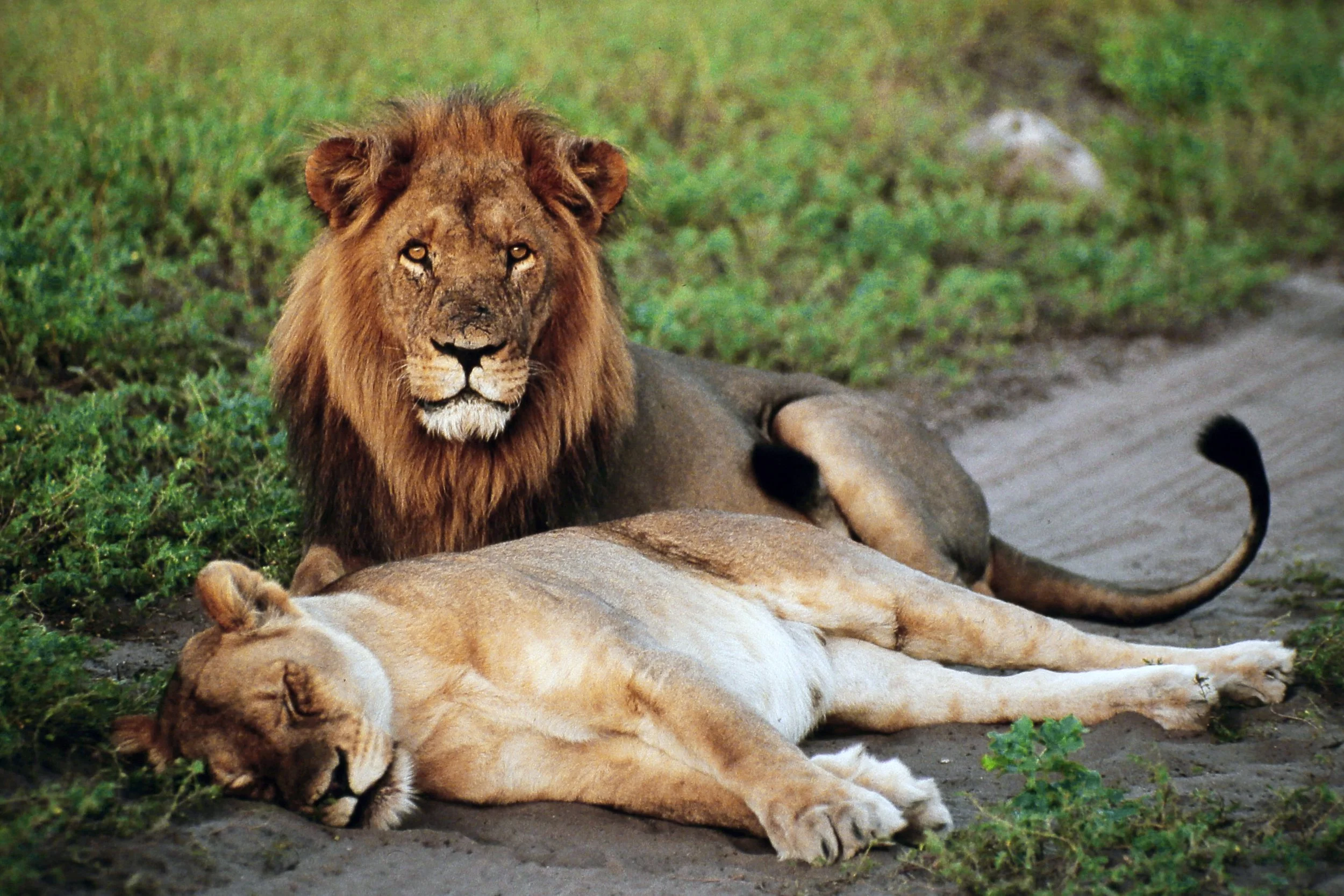Botswana
An excerpt from The World Has A Big Backyard
A team of us were on a scouting trip through southern Africa for the making of a documentary film entitled The Greatest Places. We were looking to film magnificent manifestations of the physical geography of our planet, including what might be regarded as one of the greatest rivers on earth–the Okavango. Most rivers run into another body of water: a lake, an ocean, another river. However, the Okavango does not–it fans out over a 150-square-mile area of the Kalahari Desert in Botswana.
Late one day as we drove back to camp, we approached a pack of wild dogs lying about. Our guide cautioned us to keep our hands and arms in the truck. As passive as they appeared, these were not the kind of dogs you pet. We watched as one rose and started “twittering.” More joined in, touching their noses together and making high pitched sounds before they dashed off as a pack. Our guide explained that this was their behavior when rallying for a hunt.
Late that afternoon, we stopped at a watering hole and watched as a herd of elephants made its way toward us. They ambled without interruption on the other side of an Okavango lagoon. Though we were hot, dry, and dusty from a day of safari, our guide warned us not to get any ideas about going for a dip. As the sun set, we discovered the wisdom of his advice when a peaceful-looking landscape revealed itself to be otherwise. A pair of eyes popped out of the water. That pair was followed by another, and another, and a dozen more—crocodiles.
African freshwater crocodiles are aggressive, with a powerful bite, sharp conical teeth, and a strong grip that allows them to hold down their victims underwater to drown. They are ambush predators who will wait hours–even days–for the moment to attack.
Our guide told us the story of one of the most horrific crocodile attacks ever reported, which happened in the Democratic Republic of the Congo to two world-class kayakers, Chris Korbulic and Ben Stookesberry. The pair met in Oregon at the screening of a kayaking film and developed a friendship that took them to rivers in Bhutan, Argentina, Canada, Pakistan, and elsewhere around the world. In 2010, they headed off for a trip on the Congo’s Lukuga River. Their expedition was led by Hendrik Coetzee, a South African living in Uganda who was regarded as the premier kayaker in Africa.
All three kayakers were experts at running whitewater rapids. The Americans planned to film the trip on the Lukuga, a river whose navigation had never been documented. After weeks of preparation, the three kayakers launched their expedition.
The Lukuga River includes one forty-mile stretch of rapids, which the group navigated in their first days on the river. Having navigated the last expected rapids, they started out early the next morning. They spotted a few small crocodiles along the way. As experienced kayakers, they cautiously paddled their three kayaks in a tight formation so they would look like one big creature to any potential predator. Hendrik Coetzee led the way when disaster struck. Chris Korbulic only saw the flash of the giant jaws of a crocodile as it leapt from the water and grabbed Coetzee. The crocodile pulled him out of sight, never to be seen again.
The American kayakers raced ahead a mile to a village on the shore. Minutes later, Coetzee’s empty boat floated by. Stookesberry later spoke of the tragedy, saying, “Before we could even react, the kayak was almost submerged. When it came back up, it rocked slightly to reveal an empty cockpit. The attack was like lighting striking. I didn’t understand how something that big could have come out of that river without us having any inkling.”
The morning following my first crocodile sighting, I strolled with our guide from our campsite in Botswana to a nearby lagoon to enjoy a cup of coffee and the serenity of a cool Okavango morning. On the other side of the pond we saw a pack of wild dogs chasing, but not catching, a herd of impala. They all ran off beyond our view, but one of the impalas had chosen to run into the water as its defense against the dogs. It stood in water up to its chest, frozen with fear. As the expert of our group, our guide said something that I understood from our experience the evening before. He muttered, “That critter is in deep shit.”
We waited. Before long, a pair of eyes popped up from the water and began moving toward the hind end of the impala. The crocodile picked up speed as its jaws widened to bite deep into the animal’s haunch. Then it swam off, leaving its quarry bleeding profusely.
Another set of eyes appeared, following a similar path and moving faster than the first. We stood silent, holding our coffee cups, and bearing witness to a pending evisceration. This croc moved with remarkable speed as it leapt from the water, clamped its jaws around the impala’s neck, and did a mid-air twist, which loudly snapped the neck of the already bloodied prey.
Welcome to breakfast in the Okavango.



